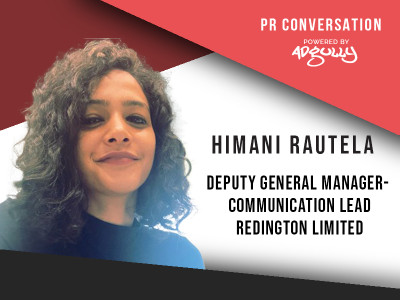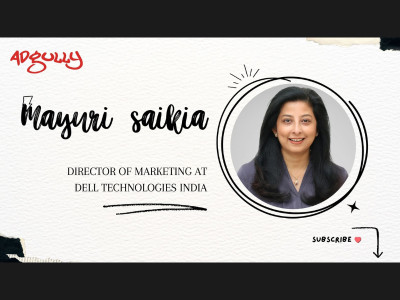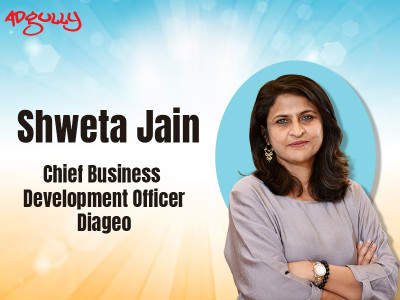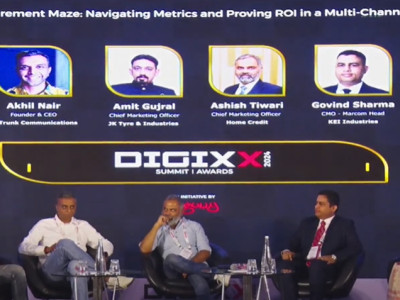Exceed Entertainment’s Arjun Banerji on life as a talent manager in India
Arjun Banerji, Head of Talent and New Ventures at Exceed Entertainment, has over 13 years of experience in the Media and Entertainment industry. He has worked with notable brands, such as Mountain Dew, Axe, Cult Fit, and Nimbooz, featuring prominent artists like Nora Fatehi, Guru Randhawa, and Mithila Palkar.
In conversation with Adgully, Arjun Banerji speaks at length about the trends, challenges and strategies in that work in the entertainment management industry. He stresses on proactiveness, having a solution-based attitude and being open to learning on a constant basis as the key factors to be a successful in the talent management field.
How do you stay up-to-date with industry trends and changes, and what steps do you take to ensure that your talent is always ahead of the curve?
I think my steps of staying up to date with the industry trends and changes are very simple. I keep myself updated with the brand world, with what’s happening in the film business in terms of what kind of numbers we are doing, which way is the film business going to gravitate, who’s doing well, and what kind of content is doing well. I gather from actually reading about the business and staying up to date through social media. I am regularly in touch with agents and managers in the West. But a lot of it is also by being in touch with or catching up with some of the younger members of the team, because of the lot of things that they consume organically, which are part of their daily lives. We may seem to miss them, especially if they are upcoming trends or artists.
How do you see the talent management industry evolving in the coming years, and what steps are you taking to prepare your agency for these changes?
I think the talent management industry evolves every two or three years. For example, when I started, there were primarily two kinds of people – there were managers, who would manage; and there were the sales people, who would sell. The managers would strategise with the senior team members and the sales team. But now, there are specific managers/ agents that handle specific kinds of talent, be it writers or directors, because when this business started, it was primarily mainstream actors. Thus, it has evolved. There are people who have expertise in managing social media stars or influencers. Thus, things are getting more and more specific.
This kind of a scenario didn’t exist 15-20 years ago. Today, a manager who manages a specific talent, has an expertise in that particular sort of field as opposed to just being a manager. We are up to date with this, especially with creative talent. We try to find managers who have a natural liking or inclination and technical knowledge of the kind of talent that they are going to manage. They should be able to sit with their talent and give them technical feedback. Now, it is primarily about finding managers who have technical knowledge of creative talent that they are managing. So, when they give feedback, the feedback is not just as a manager who has an overview of handling the talent, it is also technical in nature, especially with musicians, writers, directors.
How do you balance the needs of your talent with the needs of the agency as a whole, and what strategies do you use to ensure that everyone is working together effectively?
I think balancing the needs of the talent in the agencies pretty much go hand-in-hand. Primarily with every talent, we have short term and long term goals. As an agency, from a bottomline point of view, we align ourselves with that – with every specific talent, there are times where we have to, or want to, or purposely let go of things in order to achieve the larger goal. There are also times where we are more focused on short term goals, which are the need of the hour. With each talent, when a year starts when they join us, or every quarter or every six months, we have our own goals. So, it’s actually not that difficult to balance it, because the long term goal is if the talent grows, then the agency grows, and so does the bottomline for both the parties. However, in order to achieve that, in the long run we have to keep our short term and long term goals aligned.
What are some of the biggest challenges that you face as the talent head of a talent management agency, and how do you work to overcome these challenges?
I think one of the biggest challenges that you face on a regular basis is convincing your talent to do something – whether it’s a film or a brand campaign, wherein you and your colleagues see a lot of value, but the talent feels differently. But somehow – because you are privy to a little more information on the talent side of the business, or what your competitors are doing – you are fully convinced that this is the best move in the long term, whereas the talent feels differently. So, you need to convince them. Sometimes they agree, sometimes they don’t, but it’s a great challenge to have on a regular basis, because you are engaging in back and forth with your artists. And the equation is not like a ‘yes man’. Obviously, it feels great when the talent sees our point of view and when it pays off, we see results collectively. But this is one challenge that I think everyone would face on a regular basis.
What advice do you have for aspiring talent managers looking to break into the industry, and what qualities do you think are most important for success in this field?
There are two or three basic qualities that you need to have as a youngster. First, especially when you are starting out, is proactiveness and wanting to do things. In the long term you need to have a solution-based attitude if you want to go far, because this business is so dependent on too many people, it is dependent on a lot of last minute changes. Thus, you will be facing challenges that you have to deal with, and if you are not a solution-oriented kind of a person, I don’t think you will last very long. Because when you are in a problem, everyone looks for a solution. Everyone looks for a leader who will help them get out of the problem. So overall, I feel that’s what helps the most. One needs to be proactive and open to learning more, because this business changes every 3-4 years and there’s a major shift. So, you need to be open to a lot of changes. To sum it up, proactiveness, having a solution-based attitude and being open to learning on a constant basis are the key factors to be a successful in this field.


















Share
Facebook
YouTube
Tweet
Twitter
LinkedIn